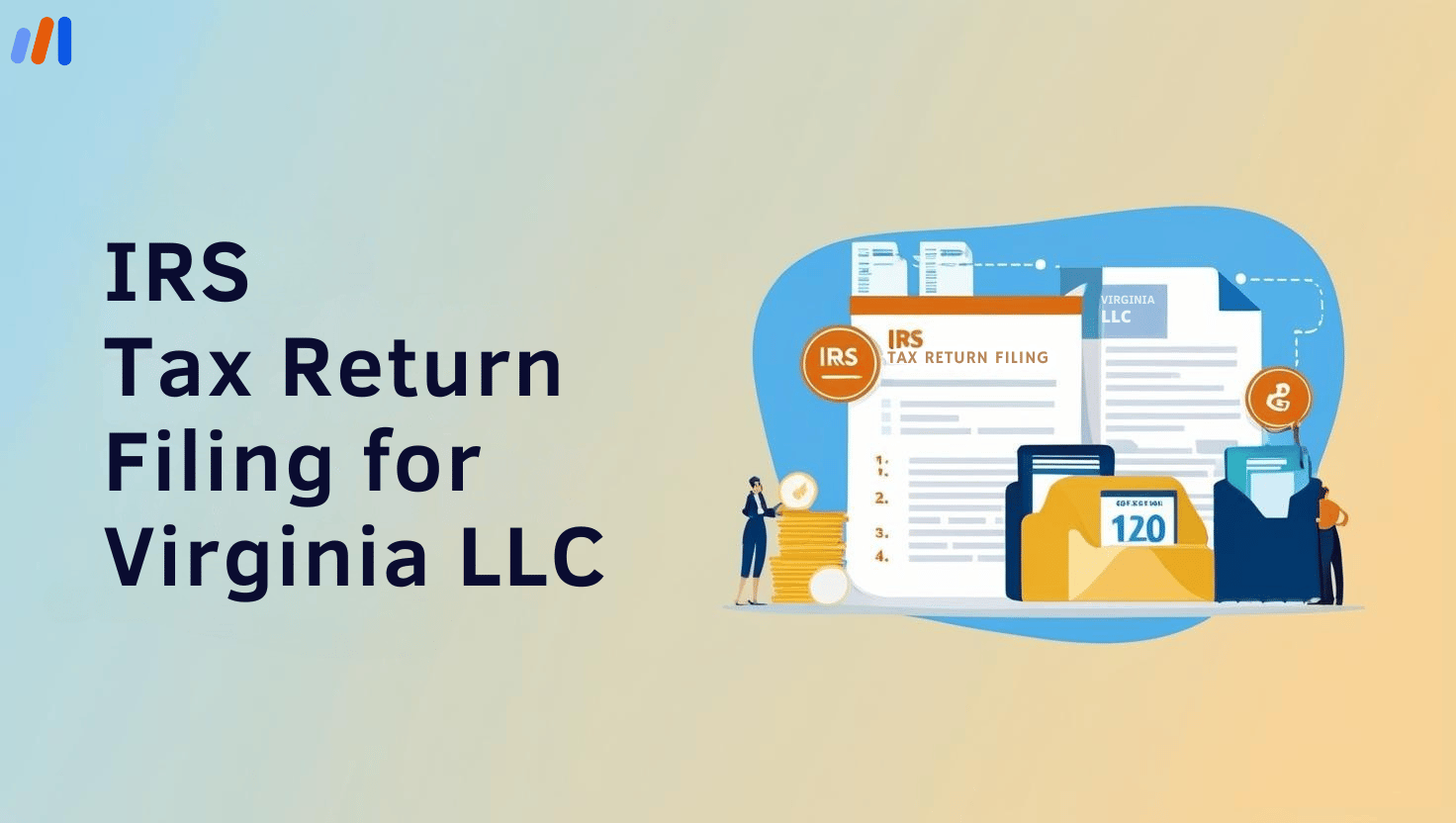There are great tax benefits of incorporating in Delaware which has made Delaware the state of choice for many businesses in the US.
The business attraction is not only restricted to the fiscal advantages but also the legal structure and background conducive to business endeavors.
In this article, we will highlight what most entrepreneurs, start-ups, and multinational corporations know very well. That’s the key tax advantage when it comes to Delaware incorporation and why it has become a domicile of choice in the USA.
1. No State Sales Tax
One of the few states that do not pass a state sales tax to customers on the sale of either tangible goods or services is Delaware. For businesses, and especially retailers and e-commerce businesses, this rule is a great help.
Companies that are not subjected to a state sales tax can price their goods or services lower than those in states where such a levy exists. In this case, e-commerce businesses can dramatically reduce operational expenses and pass the savings on to the customers to enhance sales.
Additionally, because Delaware does not have a sales tax, it is unnecessary for companies that import products into Delaware or are involved in interstate commerce to charge or file sales tax for the goods or services that they sell in Delaware.
This single management approach helps facilitate adherence and cut administrative costs especially beneficial to small firms or start-ups in the formative stage.
2. No State Income Tax on Out-of-State Revenue
One important tax benefit that comes about as a result of the Delaware incorporation is that the state does not charge state income tax on income that is earned from outside Delaware. This aspect is beneficial for businesses that have operations in different states or various countries.
Take for instance, if a business registered in Delaware operates in New York, Texas, or California but gets most of its sales outside the United States, Delaware will not tax sales made outside the United States, even though such business is registered in Delaware. This ensures that companies do not even pay state income tax on income that has been earned outside of Delaware which can lead to considerable tax savings.
This is important because firms with a national or global footprint can significantly reduce their taxes at the state level because they do not have to operate in states where they have no physical presence and cannot be in a situation where they are physically present in Delaware either.
For such businesses that earn revenue through out-of-state or international sources, Delaware’s revenue structure is beneficial as it works towards reducing their tax liabilities.
3. No Taxes on Intangible Assets
One of Delaware’s most appealing tax advantages is the way intangible assets such as patents, trademarks, copyrights, and other forms of intellectual property (IP) are treated for tax purposes. There are no taxes on the holding or transfer of intangible assets and this is very beneficial for firms who have a substantial amount of their worth in their intangible assets.
Indeed, many companies, in particular technology, pharmaceuticals, and entertainment firms, earn a large portion of their income from their intellectual property.
Delaware’s absence of taxation on IP ownership and transfers also means that any company can easily set up its operations that would minimize taxes on intangible assets.
For instance, a company could assign the intellectual property it owns to a company incorporated in Delaware, and this way benefit from the tax policies of Delaware in respect of the IP. This may relieve taxes that otherwise would have been payable to royalties or licensing fees earned from the IP and assist businesses in retaining a larger share of their income.
4. Corporate Income Tax
Corporate income tax in Delaware comes with a relatively reasonable level of 8.7%. Although this may come across as higher in comparison to tax levels in states like Nevada or Wyoming, most businesses find it offset by Delaware’s tax privileges.
In Delaware, the corporate income tax applies only to income derived from business activity conducted within the state. Hence, when a business earns revenue from outside of Delaware, that income will not be liable to taxation by the state of Delaware.
Such a policy enables companies with activities, or revenue sources, in other States or countries to escape the burden of relegating state income taxes to only income sourced within Delaware.
On top of that, there are also specific business development expenses that Delaware permits its businesses to deduct from their taxable income. Examples of these include but are not limited to R&D costs, business travel expenses, and the cost of obtaining new assets among other expenses that might lower the tax burden of a business.
Nationally and internationally operated companies, on the other hand, may find it quite easy to organize their business in such a way as to reduce their Delaware corporate taxes by conducting business activities outside Delaware State.
5. Franchise Taxes
There is a franchise tax that corporations pay every year in Delaware, however, it is among the cheapest compared to the franchise taxes of other states, especially for smaller corporations. This is dependent on the number of shares of the company that have been authorized or the capital stocks with a minimum franchise tax of $175 and above.
In terms of small corporations, this tax might not be significant in terms of cost, but larger corporations will incur more significant costs based on the amount of capital and structure that will be present in the corporation.
Delaware’s franchise tax system gives companies alternatives to how to be taxed, making it possible for them to structure their operations in such a way as to reduce their tax obligation.
For instance, companies can restrict the number of authorized shares to be able to pay a smaller amount of the franchise tax, or they can give lower-value stock to pay a smaller amount of taxable capital stock.
The ease with which franchise taxes can be calculated makes Delaware the preferred tax jurisdiction for companies big and small and enables them to design their business structures in line with their interests and financial targets.
6. Limited Liability for Shareholders
It is also a broadly accepted fact that Delaware has favorable laws toward its shareholders, which is a plus for entrepreneurs. Owners of business’ enjoy such high levels of legislation security through the corporate laws of the state, that they cannot be held personally liable for the debts and the obligations of the corporation.
This legal indemnity is also applicable to Delaware’s tax laws, as shareholders, officers, and directors do not have personal obligations to pay the taxes of the company.
This is true, particularly for businesses that want to limit their liability and include the benefits of Delaware incorporation as well.
The incorporation of Delaware has no threats because of the structural legal coherence of the state which eliminates the possibility of having legal problems that can eat into the tax gains that come with Delaware incorporation.
7. Flexible Business Structure
Delaware has a broad array of business laws and various forms can be in the structure of the business. The types of corporate forms that can be established in Delaware include C-corporations, S-corporations, and Limited Liability Companies (LLCs). Such a range of structures allows the business owner to incorporate the most ideal structure suitable for taxation and operational requirements.
For instance, LLCS are subject to pass-through taxation, where profits are not taxed at the corporate level but rather passed onto the owners who include the profit in their taxable income.
This prevents having two tax levels where both the corporation and the individuals are taxed which is desirable in small businesses or start-ups wishing to lower their taxes. However, bigger organizations would favor this structure because of the potential growth in capital acquisition and the ability to reinvest the proceeds back into the company through the C-corporation structure.
8. Tax Treaties and International Business
When foreign companies try to find a foothold in United States business operations, they find it much more convenient through Delaware due to the tax treaties. Delaware has quite some tax treaties with other countries which will reduce the burden of tax on the foreign countries when it comes to international transactions.
If a business registers itself in Delaware, it will be able to take advantage of these treaties and avoid having to pay tax twice on profits made through international trade, or from foreign investment.
As an example, there are several countries, primarily those that have treaties with the U.S., where U.S. companies do not have to patent because there is no withholding tax on repatriated profits such as dividends, interest, or royalties. This matter is crucial and affects the extent to which the business trades or goes into partnership with foreign business entities.
Because of the tax burdens associated with the establishment in the United States of businesses from abroad, Delaware’s reputation is more of an advantage to businesses in need of an operating presence in the US but do not want to pay more taxes worldwide.
9. No Personal Income Tax on Non-Residents
One more beneficial aspect tied to Delaware incorporation is that the state does not impose a personal state tax on income made by non-residents.
Simply put, if the business owner, a director, or an officer is a non-resident of Delaware, they will not pay tax on their earnings, including money earned from a company registered in Delaware. Business owners who reside in other states or overseas will enjoy significant tax benefits here.
This policy assists business entities in avoiding state personal income tax burdens, legally, and while enjoying the legal and tax benefits of Delaware incorporation.
The absence of personal income tax on non-residents is part of the reason why Delaware remains one of the most preferred jurisdictions by business entrepreneurs and global investors.
Tax Benefits of Incorporating in Delaware
| Feature | Details |
|---|---|
| State Sales Tax | No state sales tax on goods or services. |
| Franchise Tax | Minimum: $175 for corporations. Based on shares or capital stock value. |
| LLC Formation Fees | $90 for filing a Certificate of Formation. |
| Registered Agent Requirement | Required for all companies with a physical address in Delaware. |
| Annual Report Fees | $50 for corporations. LLCs pay annual franchise tax but no report is required. |
| Incorporation Timeframe | 1-2 business days for expedited filings, 3-5 days for standard. |
| Fortune 500 Companies | Over 60% of Fortune 500 companies are incorporated in Delaware. |
Easyfiling can help Incorporate a Business in Delaware
Incorporation of the company in Delaware has never been easier, due to the efficient and simple procedures of EasyFiling which administers the entire process.
They also make sure that whether you are a local or a foreign entrepreneur, your business includes the appropriate structure and compliance with laws along with continuous support.
With their professional services and competitive rates, EasyFiling is the recommended service provider for people wishing to leverage the business and tax climate in Delaware.
Book a free consultation today with Easyfiling to incorporate a business in Delaware.
File Your LLC Today
25$ off with a coupon
Lock in EasyFiling's transparent rates and get lifetime compliance support at no extra cost.
Get Started Now







